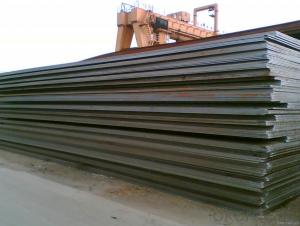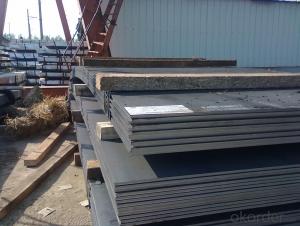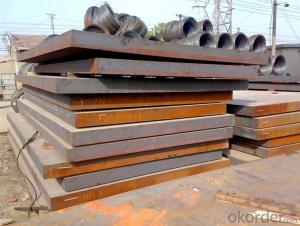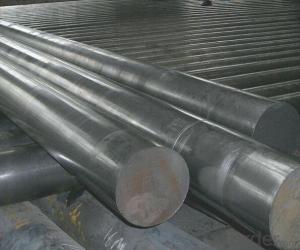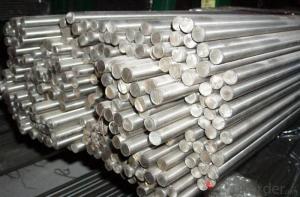Hot Rolled Mild Steel Plate JIS SS400 Carbon Steel Sheet
- Loading Port:
- China main port
- Payment Terms:
- TT or LC
- Min Order Qty:
- 25 m.t.
- Supply Capability:
- 10000 m.t./month
OKorder Service Pledge
OKorder Financial Service
You Might Also Like
Item specifice
Steel sheet, steel plate, mild steel sheet, carbon steel sheet
Size | Thickness:2.0-200mm |
Application | Steel plates are widly used as boiler plate, container plate, flange plate and ship plate, and also widly used in building construction. The size of steel plate can be made according to clients requirements. |
Packing | In bulk or as required |
| Delivery time | Within 10-25 days after order confirmed and L/C received |
Workshop Show
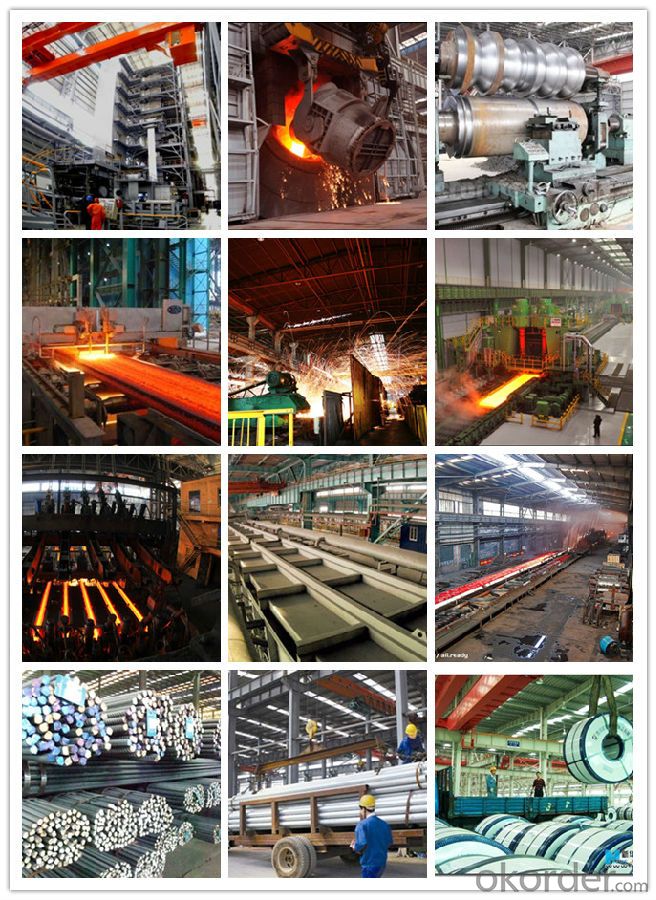
Shipping
1. FedEx/DHL/UPS/TNT for samples, Door-to-Door;
2. By Air or by Sea for batch goods, for FCL; Airport/ Port receiving;
3. Customers specifying freight forwarders or negotiable shipping methods!
Delivery Time: 3-7 days for samples; 5-25 days for batch goods.
Package Informations
1) EXPORT, In 20 feet (GW 25 ton) or 40 feet Container (GW 25 ton)
2)as customer's requirement
Why choose us?
(1) The leading exporter in China special steel industry.
(2) Large stocks for various sizes, fast delivery date.
(3) Good business relationship with China famous factories.
(4) More than 7 years steel exporting experience.
(5) Good after-sales service guarantee.
- Q:Does special steel have any magnetic properties?
- Yes, special steel can have magnetic properties. The magnetic properties of special steel depend on its composition and processing. Some types of special steel are specifically designed to be magnetic, while others may have low magnetic permeability.
- Q:How does special steel contribute to the aerospace noise reduction?
- Special steel contributes to aerospace noise reduction in several ways. Firstly, it is used in the construction of aircraft engine components such as fan blades and turbine discs. These components are subject to high temperatures and pressure, and special steel helps maintain their structural integrity, reducing vibration and noise. Secondly, special steel is also used in the manufacturing of aircraft fuselage and wings, where it helps dampen vibrations caused by aerodynamic forces, thus reducing noise. Additionally, special steel can be used in the production of sound-absorbing materials, which are used to line the interior of aircraft cabins, further reducing noise levels and improving passenger comfort. Overall, the use of special steel in various aerospace applications plays a crucial role in minimizing noise and improving the overall acoustic performance of aircraft.
- Q:How does special steel resist wear and abrasion?
- Special steel resists wear and abrasion due to its unique composition and manufacturing process. It is typically made from alloys with high levels of carbon, chromium, and other elements that enhance its hardness and strength. The addition of these elements creates a microstructure within the steel that is highly resistant to wear and abrasion. Additionally, special steel can be heat-treated to further increase its hardness and toughness, making it more resilient against the forces that cause wear and abrasion. Overall, the combination of alloying elements and heat treatment gives special steel its exceptional ability to resist wear and abrasion in various applications.
- Q:Can special steel be used in the agricultural equipment manufacturing industry?
- Yes, special steel can be used in the agricultural equipment manufacturing industry. Special steel, which includes alloys such as stainless steel and high-strength steel, offers superior strength, durability, corrosion resistance, and heat resistance properties. These qualities make it suitable for various agricultural equipment components like plows, tillers, harvesters, and machinery parts. Special steel can enhance the performance and lifespan of agricultural equipment, ensuring that they can withstand the demanding conditions and rigorous use in the industry.
- Q:How does special steel contribute to the electrical resistance of products?
- Special steel can contribute to the electrical resistance of products in several ways. Firstly, the composition of special steel can be tailored to have specific electrical properties, such as resistivity. By selecting the appropriate alloys and adjusting the carbon content, special steel can be made to have higher resistivity than regular steel or other materials. This higher resistivity is beneficial in applications where electrical conductivity needs to be limited. For example, in electrical wiring, the use of special steel with higher resistivity can help to prevent excessive current flow, reducing the risk of overheating and potential electrical hazards. Similarly, in electrical resistors, the use of special steel can provide the desired level of resistance to control the flow of current and dissipate energy in a controlled manner. Special steel can also contribute to electrical resistance through its physical properties. The microstructure of special steel can be engineered to enhance resistance to electrical current flow. For instance, the addition of certain alloying elements or heat treatment processes can create a fine-grained structure or introduce barriers to electron movement, increasing the overall resistance. Furthermore, special steel can be used in the production of electrical contact materials. These materials need to have specific electrical and mechanical properties to ensure reliable and efficient electrical connections. Special steel alloys can provide high electrical conductivity while also being resistant to corrosion, wear, and deformation, thus contributing to the overall electrical resistance of the product. In summary, special steel contributes to the electrical resistance of products through its tailored composition, which can provide higher resistivity than regular steel. Additionally, the microstructure of special steel can be engineered to enhance resistance to electrical current flow. Whether it is used for limiting current flow, controlling resistance, or creating reliable electrical contacts, special steel plays a crucial role in various electrical applications.
- Q:How does special steel perform in high-temperature oxidation?
- Special steel performs well in high-temperature oxidation due to its unique composition and properties. It exhibits excellent resistance to corrosion, heat, and oxidation, allowing it to maintain its mechanical strength and structural integrity even at elevated temperatures. This makes special steel suitable for various high-temperature applications, such as in power plants, automotive engines, and aerospace components. Its ability to withstand oxidation ensures long-term performance and reliability in extreme environments.
- Q:What are the different methods for annealing special steel?
- Special steel can be annealed using various methods, each with its own objectives and outcomes. Some commonly employed techniques include the following: 1. Full annealing: To achieve maximum softness and enhanced ductility, the steel is heated above its critical temperature and held there for a specific duration. It is then gradually cooled to room temperature. This process facilitates easier machining and manipulation of the steel. 2. Isothermal annealing: After heating the steel above its critical temperature, it is promptly transferred to a furnace or chamber where it is maintained at a constant temperature. This controlled cooling results in a uniform and fine-grained microstructure. Isothermal annealing is particularly beneficial for complex-shaped parts, minimizing distortion and improving dimensional stability. 3. Spheroidize annealing: This technique is commonly employed for high-carbon steels. The steel is heated to a temperature slightly below its critical temperature and kept there for an extended period. This encourages the formation of spheroidized carbides, enhancing machinability and reducing brittleness. 4. Process annealing: Cold-worked steel undergoes this method to alleviate internal stresses and decrease hardness. The steel is heated below its critical temperature and then cooled in still air. Process annealing restores ductility and enhances formability. 5. Stress-relief annealing: Residual stresses resulting from welding or machining can be relieved using this method. The steel is heated below its critical temperature and then slowly cooled. Stress-relief annealing minimizes distortion and prevents cracking. It is crucial to consider factors such as steel composition, desired mechanical properties, and intended application when selecting the appropriate annealing method for special steel.
- Q:How does special steel contribute to the robotics industry?
- The robotics industry benefits greatly from the use of special steel, which plays a vital role in its advancement. To begin with, special steel alloys possess extraordinary mechanical properties that make them ideal for manufacturing various robotic components. These alloys provide exceptional strength, durability, and resistance to wear and tear. Consequently, robots built with special steel can operate efficiently and reliably even in demanding environments like manufacturing plants or hazardous locations. Furthermore, special steel alloys offer outstanding heat resistance and thermal stability, a crucial characteristic in robotics. As robots often generate significant heat during operations, special steel components can withstand high temperatures without deforming or losing their structural integrity. This capability ensures that robots can perform optimally without the risk of mechanical failures caused by heat-related issues. Additionally, the corrosion resistance of special steel is highly advantageous for the robotics industry. Robots are increasingly being used in diverse applications such as underwater exploration, chemical handling, and outdoor environments. In such cases, exposure to moisture, chemicals, or harsh weather conditions can lead to corrosion and degradation of robot parts. By utilizing special steel alloys, manufacturers can significantly prolong the lifespan of robotic systems, reducing maintenance costs and enhancing overall reliability. Moreover, special steel's magnetic properties are invaluable in the development of magnetic sensors and actuators used in robotics. These sensors enable robots to detect and interact with their surroundings, improving their autonomy and adaptability. On the other hand, magnetic actuators enable precise control and movement in robotic systems. Special steel's magnetic properties contribute to the efficiency, accuracy, and responsiveness of these components, allowing robots to execute complex tasks with precision. In conclusion, special steel plays a vital role in the robotics industry by providing the necessary materials for manufacturing robust, high-performance, and versatile robotic systems. The use of special steel alloys enhances strength, durability, and the ability to withstand extreme conditions, ensuring the reliability, efficiency, and functionality of these machines.
- Q:How does special steel perform in marine applications?
- Special steel, also known as marine grade steel, performs exceptionally well in marine applications. This type of steel is specifically designed and manufactured to withstand the harsh and corrosive environments that are common in marine settings. One of the key advantages of special steel in marine applications is its high resistance to corrosion. Marine environments naturally contain high levels of saltwater, which can be highly corrosive to traditional steel. However, special steel is made with additional alloying elements, such as chromium and nickel, which provide excellent resistance to corrosion. This ensures that the steel remains structurally sound and maintains its strength and integrity over time. Furthermore, special steel also possesses superior strength and toughness characteristics, making it highly suitable for marine applications. It can withstand extreme temperatures, heavy loads, and impacts, making it ideal for use in shipbuilding, offshore structures, and other marine equipment. It is also highly resistant to fatigue, which is crucial for structures that are constantly exposed to dynamic loads and vibrations in marine environments. Additionally, special steel is known for its excellent weldability and machinability, allowing for easy fabrication and installation in marine applications. This steel can be easily formed into different shapes and sizes, providing flexibility in design and construction. Overall, special steel is highly reliable and durable in marine applications due to its exceptional corrosion resistance, strength, toughness, and weldability. It ensures the longevity and safety of marine structures and equipment, making it the preferred choice for various marine industries.
- Q:What are the specific requirements for special steel used in the marine propeller industry?
- The special steel used in the marine propeller industry must meet specific requirements to ensure optimal performance and durability in harsh marine environments. Some of the key requirements include: 1. Corrosion Resistance: Marine propellers are constantly exposed to saltwater, which can cause corrosion. Therefore, special steel used in the marine propeller industry must have high resistance to corrosion, preventing the formation of rust and maintaining the propeller's integrity over time. 2. Strength and Toughness: Marine propellers are subjected to high mechanical stresses and impacts, especially in rough sea conditions. The special steel used must possess high strength and toughness to withstand these forces without deformation or failure. 3. Fatigue Resistance: Propellers experience cyclic loading due to rotational forces, which can lead to fatigue failure over time. The special steel should have excellent fatigue resistance to withstand millions of load cycles without developing cracks or fractures. 4. Weldability: Propellers are often manufactured in segments and then welded together. The special steel used must be easily weldable, ensuring strong and reliable joints that can withstand the propeller's operational stresses. 5. Heat Resistance: Propellers generate significant heat due to friction and propulsion forces. The special steel should have good heat resistance to prevent deformation or loss of mechanical properties at elevated temperatures. 6. Machinability: Special steel used in the marine propeller industry should be readily machinable to allow for precise shaping and finishing of complex propeller blade designs. 7. Non-Magnetic Properties: Many modern ships utilize magnetic navigation systems and sensors. Therefore, the special steel used in propellers should have low magnetic permeability to minimize interference with these systems. Meeting these specific requirements ensures that the special steel used in the marine propeller industry can withstand the challenging conditions of seawater, provide efficient propulsion, and maintain its structural integrity throughout the propeller's lifespan.
1. Manufacturer Overview |
|
|---|---|
| Location | |
| Year Established | |
| Annual Output Value | |
| Main Markets | |
| Company Certifications | |
2. Manufacturer Certificates |
|
|---|---|
| a) Certification Name | |
| Range | |
| Reference | |
| Validity Period | |
3. Manufacturer Capability |
|
|---|---|
| a)Trade Capacity | |
| Nearest Port | |
| Export Percentage | |
| No.of Employees in Trade Department | |
| Language Spoken: | |
| b)Factory Information | |
| Factory Size: | |
| No. of Production Lines | |
| Contract Manufacturing | |
| Product Price Range | |
Send your message to us
Hot Rolled Mild Steel Plate JIS SS400 Carbon Steel Sheet
- Loading Port:
- China main port
- Payment Terms:
- TT or LC
- Min Order Qty:
- 25 m.t.
- Supply Capability:
- 10000 m.t./month
OKorder Service Pledge
OKorder Financial Service
Similar products
New products
Hot products
Hot Searches
Related keywords
